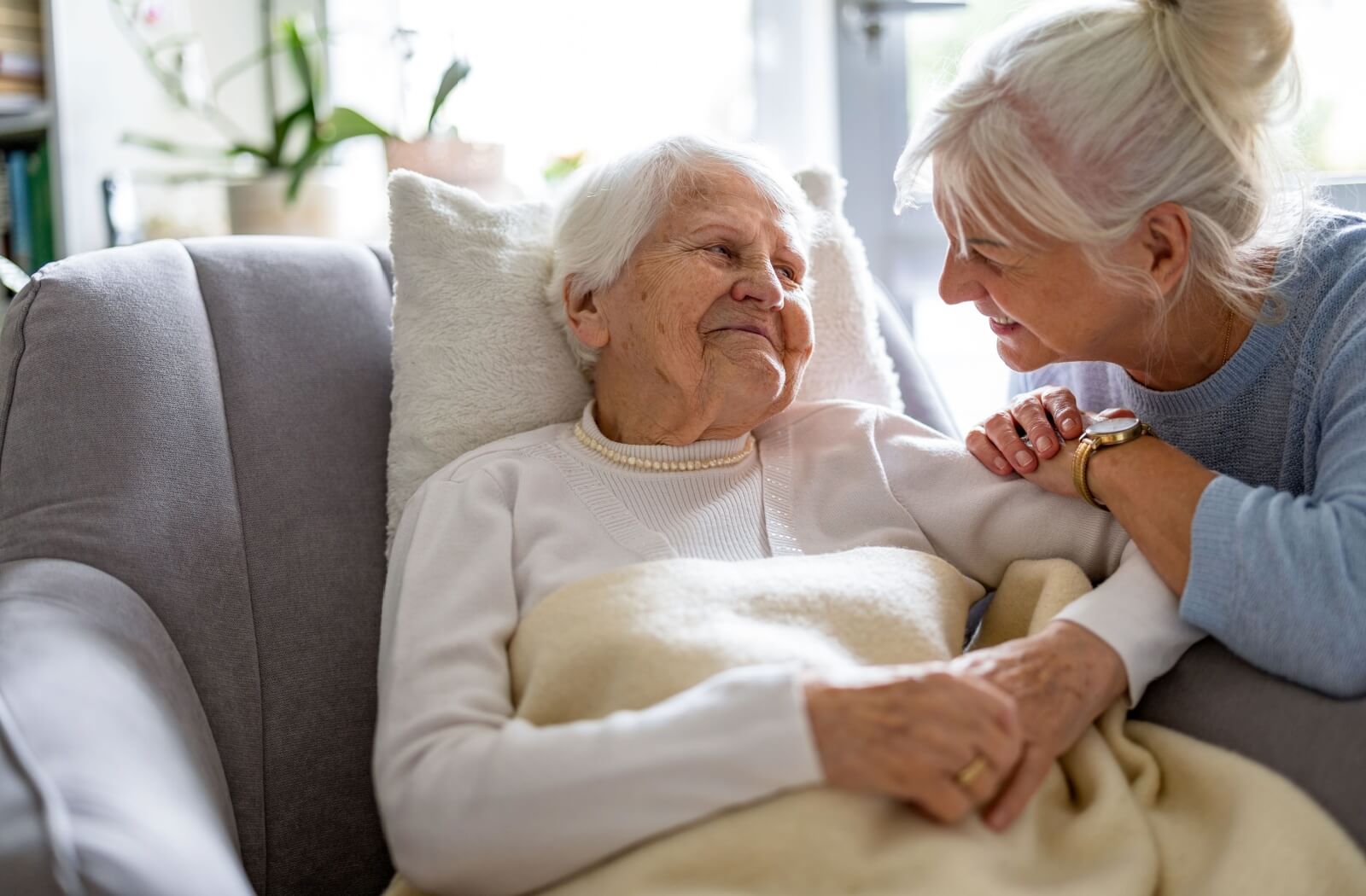Caring for a loved one is one of the most selfless acts a person can do. But it can also be emotionally and physically exhausting. If you often feel overwhelmed, irritable, or depleted, you may be experiencing caregiver burnout—a common but manageable condition that affects many caregivers.
The first step in recovering from caregiver burnout is recognizing that you’re experiencing it, and then a few other considerations are:
- Prioritizing self-care
- Setting healthy boundaries
- Seeking help and support
The reality of caregiver burnout highlights the value of communities that offer temporary services like respite care. These services can help you recover from caregiver burnout, and they can also help prevent it. Another thing that families can consider in managing burnout is long-term senior care options like assisted living or memory care. These various lifestyle arrangements can all cater to different senior’s needs.
Recognizing the Signs of Burnout
The first step toward recovery is recognizing the signs of burnout. Too often, caregivers dismiss their feelings of exhaustion as just “part of the job.” But early recognition is crucial to preventing further physical and emotional strain.
Common Behavioral & Emotional Indicators
Some behavioral and emotional signs of burnout include:
- Constant fatigue, even after resting
- Increased feelings of irritability, frustration, or hopelessness
- Difficulty concentrating or making decisions
- Neglecting personal needs or social activities
- Resentment toward caregiving responsibilities or the person you’re caring for
It’s normal to feel overwhelmed occasionally, but when these feelings persist or worsen, it’s a signal to step back and reassess your well-being.
Why Early Recognition Matters
Ignoring the symptoms of burnout doesn’t just impact your health—it can also compromise the quality of care you provide to your loved one. Identifying these signs early on allows you to seek support and take corrective measures before reaching a breaking point.
Understanding the Causes of Burnout
Burnout doesn’t happen overnight. It’s typically the result of unaddressed stressors building up over time. You can better address and manage these challenges by understanding what contributes to the strain. Common factors leading to burnout include:
- Physical demands: Caregiving often involves physically taxing tasks like lifting or assisting with daily activities. Over time, these duties can take a toll on your body.
- Mental and emotional stress: Constant worry about your loved one’s health, finances, or future can lead to chronic stress.
- Lack of support: Many caregivers find themselves without adequate emotional or logistical help from family, friends, or others.
- Unrealistic expectations: Feeling like you must “do it all” or have everything under control can set you up for disappointment and guilt.
Recognizing these factors can help you understand why you might feel burnt out and also help inform the next steps you need to take for recovery.
Strategies for Recovery
Overcoming caregiver burnout is possible and essential for both your well-being and the quality of care you provide. The following strategies can help restore balance and health.
Prioritize Self-Care
Many people fail to prioritize self-care because they focus on caring for their loved one. But self-care is essential.
- Sleep: Aim for 7–9 hours of quality sleep each night. Good rest is the foundation of both mental and physical health.
- Nutrition: Eat balanced meals to fuel your body and mind. Hydration is equally important.
- Exercise: Even a short daily walk can ease stress, improve mood, and boost your energy levels.
Set Healthy Boundaries
Learn to say “no” to excessive demands and delegate tasks when possible. It’s okay to acknowledge that you can’t do everything. Setting boundaries doesn’t make you a bad caregiver—it makes you human.
Seek Help & Support
Reach out to family, friends, or professional services for help with caregiving duties. Sharing the load doesn’t diminish your role—it reinforces your ability to provide better care.
The Importance of Support Systems
No one should go through caregiving alone. A solid support network can make a world of difference in managing stress and emotional burdens.
Building Your Network
- Family and friends: Don’t hesitate to ask for practical help, like grocery shopping or running errands. Often, loved ones want to support you but don’t know how.
- Support groups: Joining a caregiver support group—online or in-person—can provide a safe space to share experiences, gain insight, and feel less alone.
Professional Resources
Respite care offers temporary relief by providing professional help for your loved one. Therapists or counselors can assist in processing emotions and teaching stress-management techniques. Caregiver hotlines can also be invaluable resources for advice and emotional support.
Long-Term Wellness Strategies
One must consider the long-term commitment of caring for an aging loved one and plan accordingly.
- Regular self-check-ins: Periodically assess your emotional and physical well-being. Are you feeling overwhelmed again? What’s contributing to it?
- Routine breaks: Schedule regular time off, even if it’s just an afternoon to read, relax, or pursue a hobby.
- Mindfulness practices: Practices like meditation and journaling cultivate effective stress management over the long haul.
Balancing Caregiving with Other Senior Care Options
Recognizing caregiver burnout, addressing its causes, and taking purposeful steps toward recovery can renew your energy and passion for caregiving. Remember that seeking help is a strength, not a weakness.
Call our compassionate team at Bridge Senior Living today. We’d love to connect you with one of our communities in your local area and show you the long and short-term care options we can provide.









